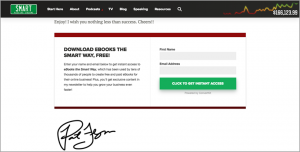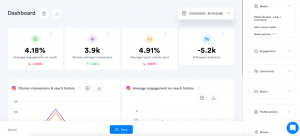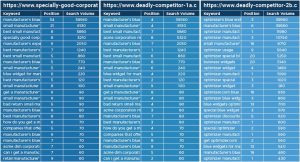While there remain some resistance, it cannot be denied that freelancing is a prominent and constantly evolving method of working. The U.S. market provides an example of this, with an estimated 53 million people currently working in a freelance capacity in North America. This demographic not only constitutes 34% of the workforce, but it also contributes a staggering $ 715 billion each year to the nation’s economy.
How to work more Efficiently as a Freelancer
Not only is this market and method of working even more appealing in the modern age technological advancement has also ensured that it is increasingly accessible. These factors will combine to ensure that more than 40% of the American workforce will be independent contractors in five years’ time, while this demographic may even be dominant by the year 2030.
This will have a significant impact on the labour market, as freelancing makes the transition from specialist career path to mainstream option. This has already ensured that tasks such as article writing and content creation have emerged as popular freelancing services, alongside traditional sectors such as graphic design, PHP and HTML.
In addition to this, however, there may also be concerns that aspiring freelancers are joining the market without the necessary skill-set or a clear understanding of the demands that they will face. In order to negate this and work efficiently (and profitably) as a freelancer, you will need to consider the following ideas: –
Develop clear goals that Match your vision
Freelancing requires a fixed philosophy and attitude, and one that is similar to leading a business entity. More specifically, you must have a clear vision that can be articulated in a written paragraph, before deconstructing this into actionable and measurable goals. These are not essentially for staying motivated, but they also help you to establish a time-frame for your career management and progression.
The process of establishing and achieving goals will also serve as a template for completing individual tasks on time, so this is a positive habit to develop when freelancing.
Prioritise your Workload and Organise your time effectively
Once you have established your financial and commercial goals, you need to learn the practical aspects of time management and organisation. The first element of this is prioritising your workload, completing tasks according to their scheduled deadline and alternative factors such as the time-sensitive nature of the content. This creates a fluid and organised to-do list, which can be altered in real-time and enables you to focus on each individual task as you complete it.
The key ultimately is to create an updated to-do-list that directs your activity, rather than micro-managing your time and becoming a focus for your efforts.
Embrace the tools and Skills that will help you to work more efficiently
While these points have theoretical value, they mean nothing unless you can develop the practical skills that enable you to execute them effectively. Technology can also help you to achieve these aims, as while concepts such as to-do lists can help you to organise your working schedule they can also distract you from the task of actually completing work. Fortunately, Cloud-based tools such as Kanban can manage your to-do list online and in an automated manner, while these are also compatible with project management resources such as Trello.
From a skill perspective, focus is crucial while you must also have the drive and determination to complete tasks on-time. Displaying tenacity is also crucial as you bid to win new tenders, while you must also adopt a proactive approach to learning. As you develop, you may want to add accountancy or project management skills to cope with an increased workload.
Business & Finance Articles on Business 2 Community(105)






